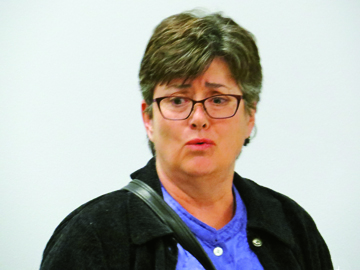
by Mark Smiley | Oct 21, 2016 | Main Articles
Tapes Caught Her Allegedly Dissembling In Front Of City Council
by Mark Smiley
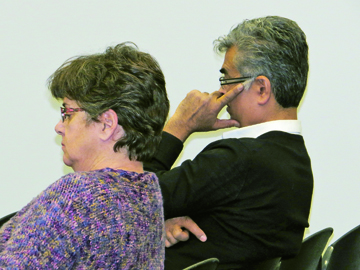
Jeanne Price often sits next to Mohammad Ali Kheirkhahi, principal of M.A.K. Investments
Denver resident Jeanne Price, who many allege to be a paid operative for Mohammad Ali Kheirkhahi of M.A.K. Investment Group, LLC (M.A.K.), has been seen as a highly unpleasant fixture at Glendale City Council meetings ever since the dispute arose over M.A.K.’s desire to build a massive apartment complex on Colorado Boulevard. The City Council finally decided at the August 16, 2016, meeting to begin to expose Price for who they believe she really is.
The Chronicle reported on her activities in the February 2016 issue (“Persian Rug Merchants Have Denverite Jeanne Price Digging Hard for Dirt”).
What outraged many of the members of Glendale City Council was that fact that she approaches the podium to speak at most City Council meetings and makes what they believe at times outrageous and scurrilous allegations about City Council members and city employees during the “Public Comments” section of the meetings.
Glendale Mayor Mike Dunafon stated, “The ‘Public Comment’ section of every meeting is supposed to allow for everyday citizens to be able to present their thoughts on the city and issues of concern to them. It is not for a paid operative from Denver to libel the city and everyone in it with outrageous allegations.”
Among the accusations by Price that the City Council believe to be false and libelous are, that (1) the City Council had met in “Executive Session” over half the time in the last four or five years; (2) the City Council had refused to state what matters the Executive Sessions concerned; (3) in violation of the Colorado Open Records Act, Price had been denied access to the minutes of the City Council over the last several years; and (4) the City Clerk had willfully misrepresented what she had said in prior Council meetings.
It is illegal under Colorado law for a city council to meet in executive session e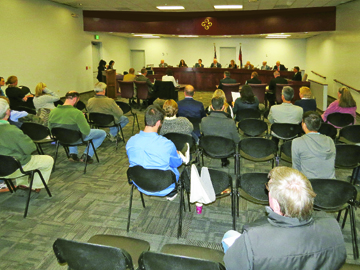 xcept for a very limited number of instances such as personnel matters or to receive legal advice concerning pending or ongoing litigation. It is also illegal not to state what subjects are to be discussed at an executive session. Finally, it is illegal under the Colorado Open Records Act to refuse to supply copies of records clearly in the public domain including minutes of public meetings.
xcept for a very limited number of instances such as personnel matters or to receive legal advice concerning pending or ongoing litigation. It is also illegal not to state what subjects are to be discussed at an executive session. Finally, it is illegal under the Colorado Open Records Act to refuse to supply copies of records clearly in the public domain including minutes of public meetings.
At the August 16, 2016, meeting when Price approached the lectern to harangue the Council, the mayor indicated he wanted the City Clerk to read her exact accusation at a prior Council meeting concerning the Council convening in Executive Session over 50 percent of the time. Price quickly denied she had ever made such an allegation declaring, “I said I’d been here over the last seven or eight months and it seemed to me you spent a lot of time in Executive Session. I did not say in the last five years.”
The City Clerk then read from a transcript the recording of the meeting of what Price had, in fact, said which was, “More importantly, it’s just my observation having read four or five years of your minutes, that this Council spends more than half of its time in Executive Session, and that is a unique situation in my experience.”
Caught in what would appear to be a direct lie did not appear to phase Price. She declared, “I have a recording of what I said and what I said was ‘this Council’ with great emphasis meaning the people sitting up there last September were spending a lot of time in Executive Session, compared to other times. I have the recording. I am happy to share it with anybody.”
At the City Council meeting on September 6, 2016, the deputy city manager played the actual tape in which Price declared exactly what the City Clerk had read and not what was alleged by Price. She then told an incredulous audience that what was played was just 20 seconds of a three-minute statement. The mayor indicated the city would play the entire three minutes at the next city council meeting which would show that Price was lying once again but Price had no response.
As to the actual Executive Session allegation itself, the city clerk reported that in the last five years the City Council had met for a total of 9,660 minutes and only 395 minutes were in Executive Session or 4 percent of the time. The City stated that almost all such Executive Sessions regarded receiving legal advice concerning lawsuits filed against the city by Price’s alleged employer M.A.K. and Mohammad Ali Kheirkhahi. Moreover, in contradiction of her allegation the City Council did, in fact, state what subjects were to be discussed in Executive Session each and every time.
Finally, as to Price’s allegation she was illegally denied access to copies of Council minutes, the City Clerk noted that all the minutes from 2013 forward were, in fact, up on the city website for anyone to look at and moreover pursuant to Price’s CORA request she was provided the minutes going back to 2002, as well as the actual recordings in many instances.
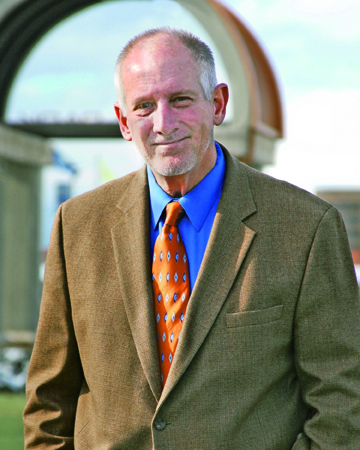
Councilman Scott Brock
Mayor Mike Dunafon indicated that “it was important for the public to see who and what Jeanne Price really is, but even I did not expect to see her incredible sad pathologies so fully on display.”
“Jeanne Price’s wild accusations have become tiresome,” said Councilmember Scott Brock. “The public needs to know that these allegations are obvious lies. She has lost all credibility with this Council and she digs herself and M.A.K. a deeper hole every time she gets up to speak.”
When inquiries were made to Jeanne Price soliciting a response on her accusations and her conduct at the last several City Council meetings, she declared in an email to the Chronicle for attribution that “I love October.”
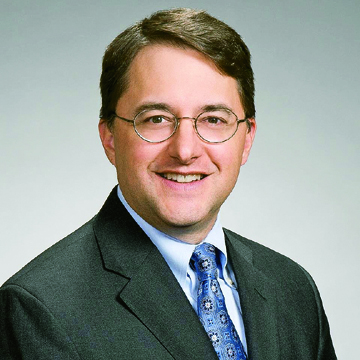
by Mark Smiley | Oct 3, 2016 | Main Articles
Mayor Dunafon And Former Councilman Jeff Allen Fully Exonerated
by Mark Smiley
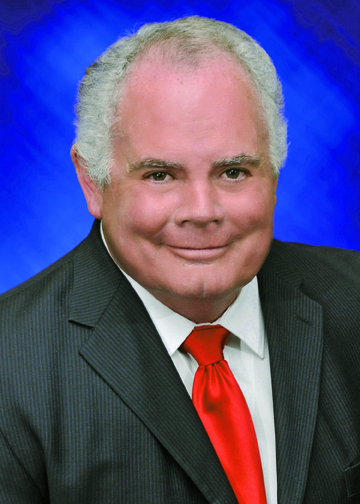 In a startling reversal of fortune Russell Kemp of the law firm of Ireland, Stapleton, Pryor & Pascoe, PC has had an ethics grievance lodged against him with the Colorado Supreme Court’s Office of Attorney Regulation. The complaint against Kemp (Case No. 16-7526) alleges that he violated Rule 4.5 of the Colorado Rules of Professional Conduct when he filed what was found by the Glendale City Council to be a frivolous complaint against former Glendale City Councilman Jeff Allen for voting to approve the City’s general 2016 budget.
In a startling reversal of fortune Russell Kemp of the law firm of Ireland, Stapleton, Pryor & Pascoe, PC has had an ethics grievance lodged against him with the Colorado Supreme Court’s Office of Attorney Regulation. The complaint against Kemp (Case No. 16-7526) alleges that he violated Rule 4.5 of the Colorado Rules of Professional Conduct when he filed what was found by the Glendale City Council to be a frivolous complaint against former Glendale City Councilman Jeff Allen for voting to approve the City’s general 2016 budget.
Rule 4.5 prohibits attorneys from presenting administrative charges “solely to obtain an advantage in a civil matter.” Kemp is the attorney for M.A.K. Investment Group, LLC whose principals own Authentic Persian & Oriental Rugs. He and his firm have brought two lawsuits in state court and one in federal court in Colorado against the City of Glendale relating to the Glendale 180 project which involves building an entertainment district on East Virginia Avenue where MAK owns land. Kemp and his firm have also filed over 15 separate open record requests resulting in almost 100,000 city documents being produced.
Allen indicated that “MAK and its attorneys and agents have been at war with Glendale for several years which includes filing frivolous ethics complaints against myself and Glendale Mayor Mike Dunafon. Ireland Stapleton through its litigation has cost its client hundreds of thousands of dollars for no discernable purpose or gain other than greatly enriching the law firm. The ethics complaint against me was a joke and this type of litigation tactic by Kemp simply should not be tolerated by the Colorado Supreme Court or the legal community as a whole.”
On March 18 Kemp and Ireland Stapleton filed a complaint against Allen that by voting along with a unanimous City Council to approve the 2016 City Budget, Allen violated the Glendale Code of Ethics Section 2.14.040(B) by performing “official act directly or substantially affecting to its economic benefit.” It was purported by Kemp since Allen works for the Chamber of Commerce and the Chamber of Commerce gets funds from the City he could not vote on the general budget. But City Attorney Jeff Springer pointed out that the budget does not break out anything for the Chamber but simply has a line for possible allocation to non-profits and further any money to the Chamber comes from a pre-existing 2004 Ordinance. The City Attorney indicated that the complaint was so obviously meritless that he did not deem it worthy of even referring it out to an outside independent council.
MAK is also alleged to have gotten Colorado Ethics Watch to file an ethics complaint against Glendale Mayor Mike Dunafon claiming he should not have voted to approve a site plan of a company one of whose shareholders was his wife Debra Matthews for a marijuana dispensary. Colorado Ethics Watch has been accused by some of being a “left-wing litigation machine” that has a “pay for play” model whereby it will file complaints against targets proposed by those who fund Ethics Watch’s 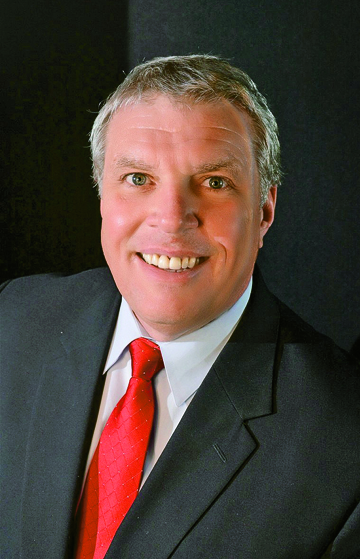 activities.
activities.
The complaint of Ethics Watch was dismissed as “frivolous” by a unanimous City Council after outside legal counsel Nathan Chambers pointed out that Ethics Watch didn’t even bother to check whether Dunafon and Matthews were in fact married at the time of vote. Chambers noted that he had checked the applicable records and had confirmed that they were not married and therefore there was absolutely no basis for the complaint in the first place.
Dunafon stated, however, that the frivolous filing had its intended effect. “MAK and its attorneys and publicity agents had the complaint splashed all over the local and even regional press. The finding that the complaint had no merit and was frivolous got absolutely no publicity. They knew what they were doing and it’s repugnant.”
Allen concluded, “It is sad and pathetic what Mohammad Ali Kheirkhahi, Nasrin Kholghy and the rest of the vicious crew will do to people in order to try to force a rezoning of a parcel of land that is opposed by almost everyone in Glendale and all the surrounding Denver neighborhoods. People like Russell Kemp are the reason why Americans have such an incredibly low opinion of lawyers and their ethics. He should not be practicing law.”
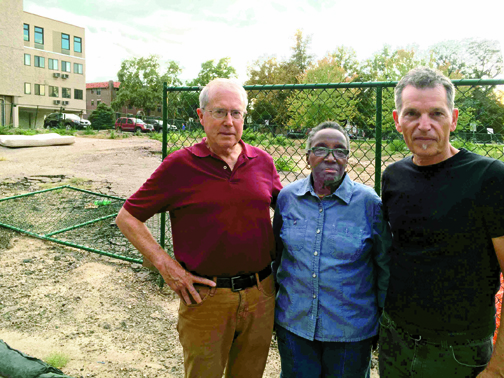
by Mark Smiley | Oct 3, 2016 | Main Articles
Highly Esteemed Hirschfeld Wants To Build 108 No Parking Micro-Units On Historic Street
by Charles C. Bonniwell
The Humboldt Street Neighborhood Association was formed in 1992 during the summer of violence to fight gangs, drugs and frequent gunfire on the block of central Denver running between Park Avenue and Franklin Street. The block  was designated a Historic District in 2004. But the neighborhood is now facing one of its greatest threats from powerful, well-regarded and politically connected developer Barry Hirschfeld, who wishes to build on two small lots five-story micro-unit apartments which will have an incredible 108 units as well as a restaurant while not providing a single parking place.
was designated a Historic District in 2004. But the neighborhood is now facing one of its greatest threats from powerful, well-regarded and politically connected developer Barry Hirschfeld, who wishes to build on two small lots five-story micro-unit apartments which will have an incredible 108 units as well as a restaurant while not providing a single parking place.
The residents of Humboldt Street and the surrounding restaurants and commercial establishments believe the project will create a parking nightmare, lower property values and badly hurt businesses in the area.
The Humboldt Association joined forces with Curtis Park Neighbors to fight Hirschfeld. Curtis Park also faces no parking micro unit projects including one believed to be associated with Hirschfeld. David Engelken from the Humboldt Street Neighborhood Association stated, “We would like to sit down with Mr. Hirschfeld to try to work out a ‘win-win’ scenario, but after one meeting, he has totally stonewalled the neighborhood groups on this matter.”
Millennials Never Own Cars?
Hirschfeld and other similar developers have claimed that millennials who will live in the extremely small units will not own cars and therefore their projects will not result in an endless fight over a very limited number of on street parking spaces. That claim has been refuted by, among others, Denver Councilwoman Debbie Ortega who went on a fact-finding mission to Seattle concerning micro unit projects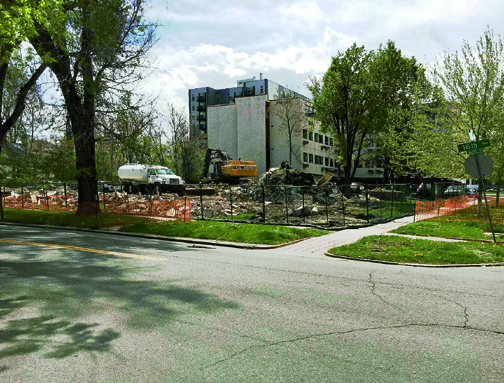 several years back. She noted in a letter dated January 27, 2016, that: “The developer claimed that tenants did not own cars, but we met some of the tenants who were car owners and they described their frustrations of having to park blocks away to carry groceries home.”
several years back. She noted in a letter dated January 27, 2016, that: “The developer claimed that tenants did not own cars, but we met some of the tenants who were car owners and they described their frustrations of having to park blocks away to carry groceries home.”
UCLA urban planning professor Donald Shoup has also noted the inner city traffic congestion is often caused “by people who have gotten where they want to be, but are cruising around looking for a place to park.”
Zoning Loophole
Several years ago high density real estate developers discovered what they believed was a loophole in the Denver zoning code which was revised in 2010 to permit lots equal or smaller than 6,250 square feet to be exempt from any and all parking requirements. The amendment was apparently envisioned to allow redevelopment of small commercial spaces such as exist in the Washington Park area and on South Pearl Street.
But it turns out there are over 4,000 such lots all over the city from downtown to the Country Club area. Horrified what such developments would do to the parking in many residential neighborhoods, the City Council placed a moratorium on such developments and appointed a task force to see how the code could be modified but quixotically grandfathered in some 12 existing projects including three from the highly connected Hirschfeld’s. Since the 2010 exception already exists in the Code, no City Council approval is needed for any proposed micro-unit project without parking, including Hirschfeld’s projects. Only a simple building permit is required from the Community Planning and Development Department.
Hirschfeld had a no parking micro-unit project planned for 135 Adams Street in Cherry Creek North which he had made public but had to retreat from, due to overwhelming neighborhood opposition.
However in 2015 Hirschfeld, through an entity titled Pando Holdings Inc., acquired two small lots of 6,250 square feet each at 1570 and 1578 Humboldt Street that housed two small, historically significant, medical buildings. The opposition to Hirschfeld points out that his project is on what is in effect a 12,500 square foot lot and once again is in violation of the spirit if not the language of the 2010 amendment.
Ethically Challenged Brad Buchanan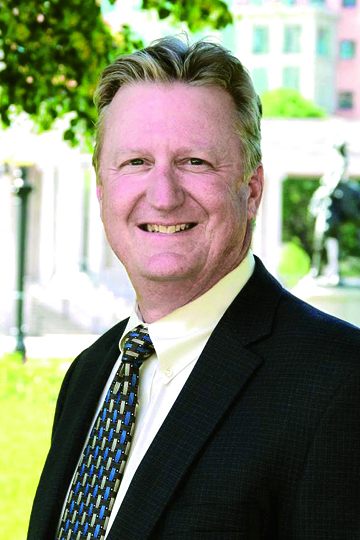
Denver’s Community Planning and Development Department, however, is generally deemed to be controlled by high density developers through Executive Director Brad Buchanan, a developer himself. The Department apparently gave the go-ahead for the micro units on the Humboldt lots and Hirschfeld quickly mowed down any trees in the area and leveled the buildings which finally gave the alert to the neighborhood association of the project. While a demolition notice would be required by law to be posted on the properties none was ever noticed by any resident of the neighborhood.
The granting of the permit to construct the micro units has been appealed to the Denver Board of Zoning Adjustments on the basis that the no parking exemption was for small, commercial developments and existing buildings. While the Board of Adjustment was intended to act as a check and balance on the Community Development Department, in recent years it has acted as little more than a rubber stamp. It is not known when, if ever, the present Board has overturned the granting of a building permit.
Moreover, like the Board of the Community Planning itself, all of the members of the Zoning Adjustment Board have been appointed by Mayor Hancock, making it highly unlikely they will vote to overturn anything deemed important to the mayor. Mayor Hancock has a strong reputation for removing anyone who acts independently from the wishes of his office on boards throughout the city.
Hope Springs
The opposition to the Hirschfeld project was headed up by Dave Engelken and Bob Hickman from Humboldt Street and Matina Soutsos and Kim Nytes from Curtis Park organization. While successfully challenging Mr. Hirschfeld is deemed by many to be a difficult proposition, even obtaining a moratorium itself was originally considered a long shot. The representatives of the Humboldt Street and Curtis Park organizations approached Councilman Albus Brooks (who represents the Humboldt Street area on City Council) with a complete draft of a proposed moratorium. Brooks is generally deemed to be highly pro developer, but also desires to succeed Michael Hancock as mayor of Denver.
While initially resistant, Brooks suddenly acquiesced to carry a moratorium resolution and in fact set it for first reading without notifying the proponent neighborhood groups that their proposal was being considered by the City Council. The Denver Post on July 20 came out with an editorial supporting the moratorium without speaking with anyone in the neighborhood groups. The City approved the same by a unanimous 12-0 vote. Councilwoman Mary Beth Susman who had vocally indicated her likely opposition to such a moratorium strangely was not present for the vote.
While the moratorium would never have occurred absent the hard work and diligence of the Humboldt and Curtis Park members, observers of the City Council have surmised that a fix must have been in for a 12-0 vote to occur putting a moratorium on any type of real estate development in the City and County of Denver. Larger developers may have been upset that small micro unit projects would take up most of the on-street parking in many neighborhoods making their larger developments with some, but inadequate, parking commercially unviable.
Pat Hamill, the Chairman and CEO of Oakwood Homes, LLC, who alle gedly controls the mayor and the city, would have had to approve the same. Hamill is the co-chair of Colorado Concern a group of business leaders whose critics accuse them of being a little more than high powered crony capitalists claiming to be looking out for the public interest.
gedly controls the mayor and the city, would have had to approve the same. Hamill is the co-chair of Colorado Concern a group of business leaders whose critics accuse them of being a little more than high powered crony capitalists claiming to be looking out for the public interest.
Hirschfeld serves with Hamill on the Board of Directors for Colorado Concern and it is assumed that it would have been easy for him to arrange with Hamill to exempt out his projects from the proposed moratorium. Logically if the parking exemption was for traditional small business commercial projects and not residential units there would be no purpose in grandfathering in Hirschfeld’s and the other projects.
Hirschfeld’s Sterling Reputation
Hirschfeld’s family owned for generations A.B. Hirschfeld Press, one of the largest commercial printers in the Rocky Mountain region, which closed its doors in 2009 after operating for 102 years. Unlike Denver developers such as Peter Kudla of Metropolitan Homes who are viewed by some as the dregs of humanity, Barry Hirschfeld himself has a strong reputation for philanthropy in the community and is held in high regard throughout Denver.
But the Humboldt micro unit project has damaged that reputation for some. He is accused of rank hypocrisy for going on community television adamantly opposing any high residential density for the church property located at Colorado Boulevard and Bayaud near his Hilltop home while pushing massive density with no parking in other neighborhoods in the city for his own profit.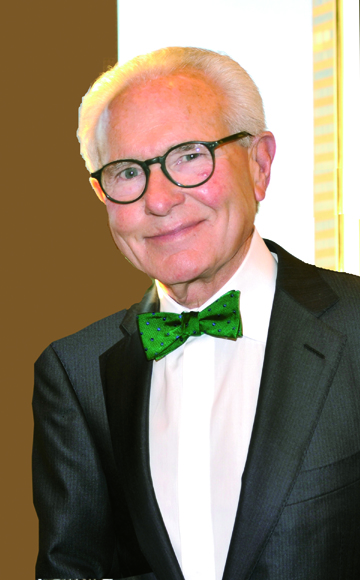
Andrew Gutshall of Denver perhaps typified the disappointment in Hirschfeld felt by many when he commented on the website featuring a petition opposing the project:
“I live in the area and will be negatively impacted by this development’s lack of parking for cars or bicycles. Obviously Mr. Hirschfeld won’t be impacted as he lives in a much more affluent neighborhood. I’m disappointed that a member of a family (4th Gen) of Denver would have such little regard for his fellow citizens all for the love of profit. Mr. Hirschfeld is an example of what is wrong with our economy and how developers are raping Denver in this latest ‘growth’ spurt. Deplorable!”
Mr. Hirschfeld did return the call from the Chronicle to get his perspective on the dispute, but politely indicated that he did not believe any useful purpose would be served in publicly commenting on the matter.

by Mark Smiley | Aug 29, 2016 | Main Articles
Arapahoe Court Dismisses M.A.K.’s Rule 106 Claim
by Charles C. Bonniwell
Seldom does a judge make a ruling in an adversarial case which makes both sides happy, but that apparently is exactly what has happened regarding Arapahoe County District Judge Charles M. Pratt’s “Order Re: Issuance of Petitioner’s Standing.” M.A.K. Investment Group, LLC (MAK) had filed a Rule 106 action against The Glendale Urban Renewal Authority (GURA) regarding the appointment of a developer for the proposed entertainment district titled Glendale 180. MAK also filed another action in Arapahoe County District that has been dismissed and yet a third in Federal Court trying to stop the project.
In the litigation in question MAK claimed first that the selection of Wulfe & Co., Inc. (Wulfe) as the developer for the project violated state law.
The original project (which was provided for in Resolution 7 of GURA) included MAK’s property, but given MAK’s objections it was subsequently taken out of Glendale 180 (Resolution 3). As part of the discovery process GURA indicated that itself and Wulfe had parted ways. The Court in its order declared that “owing to GURA’s admissions [MAK] no longer has standing to contest the alleged pre-selection of Wulfe for the Resolution 7 renewal project because [MAK] is not one of the affected property owners . . .” The Court then denied both of the competing Motions for Attorney’s Fees and Costs by GURA and MAK.
Immediately following the issuance of the Order, Cody Wertz with MAK’s public relations firm Stratton and Associates sent out a press release to virtually all local media outlets declaring “Kholghy Family Freed from Condemnation with District Court Win.” Quoting Nasrin Kholghy the press release declared: “This decision was a major victory for our family business and we are excited to pursue options to develop our property. Eminent domain is for roads and schools and not for private developers.”
The press release went on to state: Glendale did not disclose the loss of the developer until recently, thereby dragging out court proceedings, wasting taxpayer funds.”
A few hours later the City of Glendale sent out a response email declaring the “Kholghy family’s attempt to garner unwarranted sympathy from the unknowing public hit a new low today. A press release distributed to news outlets is riddled with errors and outright lies.”
In its press release Glendale went on to note that Judge Pratt ruled that MAK had no standing to contest the developer for the Glendale 180 project because they are not part of the affected property and “that the court did not rule on either condemnation or eminent domain.”
Glendale Deputy City Manager Chuck Line stated, “If MAK thinks having claims dismissed and motions denied are victories, I hate to see what a loss looks like to them.” Moreover he noted that in rejecting the request for attorney fees and costs for MAK the Court found that MAK declared that it “would have done nothing differently even if it had been informed earlier about Wulfe leaving” the project. He pointed out that Wulfe and Glendale continued to negotiate up until the beginning of 2016 and that MAK continued to litigate even after it was informed that negotiations were ceased and Wulfe would not be the developer.
Nasrin Kholghy on behalf of MAK in an email to the Chronicle appears to dispute the Court’s Order insisting: “Both our family and the taxpayers of Glendale spent funds unnecessarily because Glendale hid the developer’s departure for almost a year and publicly stating the project was ‘coming to fruition.’”
Glendale Mayor Dunafon in the city’s press release said “despite the latest attempt by the Kholghys to deny reality, Glendale 180 will be brought to life. We have tremendous momentum behind the project and we won’t let these petty PR and litigation tactics stop us.
The litigation experts consulted by the Chronicle appeared lost at what MAK’s litigation strategy is and what their goals are going forward. The remaining state court claim would appear moot as it claims simply that the appointment of Wulfe violated the open meeting laws. The federal lawsuit which seeks to have the state’s urban renewal statutes declared unconstitutional would not benefit MAK except perhaps to remove a blight designation that does not affect any development on the property. By developing the property MAK would, in fact, cause the blight designation to be removed.
Some lawyers believe that it is an attempt to recoup at least some of the staggering costs and attorney fees incurred by MAK in bringing numerous lawsuits against Glendale. Others have suggested the goal would appear to pressure Glendale to waive its zoning laws and Master Plan restrictions when and if MAK files development plans for the property. MAK’s consultants have indicated that MAK wishes to build a high-rise apartment building on the Colorado Boulevard property.
The Chronicle inquired in an email to MAK’s spokesperson Nasrin Kholghy as to what were MAK’s litigation goals going forward, but that email was not responded to by the print deadline. She was made aware of that deadline in writing.
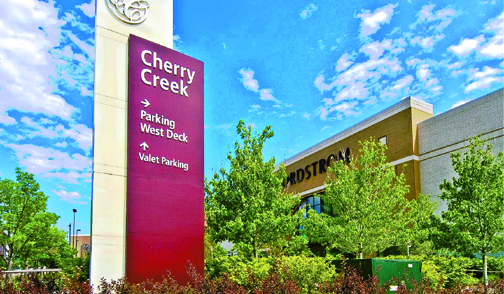
by Mark Smiley | Aug 29, 2016 | Main Articles
5,800 Parking Spaces Will No Longer Be Free
by Glen Richardson
The dreaded “no parking space” syndrome is about to come back and roost on the doorstep of Cherry Creek North. Until now when city officials, developers and retailers were asked about the lack of parking spaces in Cherry Creek North, they would point to the excess of parking spaces available at the Cherry Creek Shopping Center. No longer.
The Shopping Center announced that starting in January it will start to charge for parking. The Shopping Center had little choice in the matter. The City and County of Denver has been requiring less and less mandatory parking spaces at new apartment houses, condominiums and hotels. As a result, employees at retail establishments in Cherry Creek North, owners of second cars who lived in the new condominiums and apartment houses which provided for only one car, visitors to the new hotels, and even everyday shoppers to stores in Cherry Creek North were using the excess parking at Cherry Creek Shopping Center. In addition, the amount of parking spaces at the Shopping Center was being adjusted downward to accommodate the RN interior design building on 1st Ave., and a proposed hotel on the east side of the Shopping Center will further cut into parking.
The Shopping Center, of course, needs to meet the concerns of the 16 million people who visit the mall annually. Furthermore, there are more than 140 indivi dual retailers roosting within the mall.
dual retailers roosting within the mall.
More than two-dozen new projects have been completed, are under construction or announced in the district in the last year. Developments being completed are resulting in an increase in new businesses, retailers, and restaurants opening their doors almost weekly. All of these new offices, retail and hotels “have put greater pressure than ever on parking here,” declares the shopping center’s longtime general manager Nick LeMasters. Yet of total parking spaces available in Cherry Creek North, the 5,800 spaces in the shopping center account for 70 percent. There are roughly only 500 parking meters in the 16-block business district, another 500 off-street spaces and just over 1,000 in public garages.
Ruffled Nest Feathers
What has increasingly been happening, according to LeMasters, is that a lot of people who do not work or shop at the mall, but apparently work in the area, are parking in the center and leaving their cars parked all day. “This has created a dynamic that is not favorable to our employees at the shopping center or to our paying customers,” he says.
A new state-of-the-art parking system is currently being installed. It will be tested in the fourth quarter of this year and rolled out in January so it won’t disrupt the holiday shopping season. Parking during the first hour will be complimentary. The second hour will cost $3. An extra dollar will be added upon hour three, raising it to $4. There will be an additional $2 each hour afterward, for a daily maximum of $16.
This parking fee at the Shopping Center will be slightly more than Cherry Creek North street parking, but customers will not have to move their cars like they do on the street. Cost will be less than most other enclosed parking garages in the district, LeMasters says. The purpose of paid parking is not to raise money, but to provide a better experience for paying customers, he emphasizes. Initially, he suspects there will be some “pushback” from customers who have long been accustomed to free parking.
Brooding Of Cost
As shoppers become accustomed to paid parking LeMasters thinks they will find it is “more than worth it.” For one thing, the state-of-the-art system by Park Assist will make it easier to park and exit the mall. Signs will tell motorists where parking is available and which parking levels are filled. Each parking space will have either a green or red light, telling customers whether an individual space is filled.
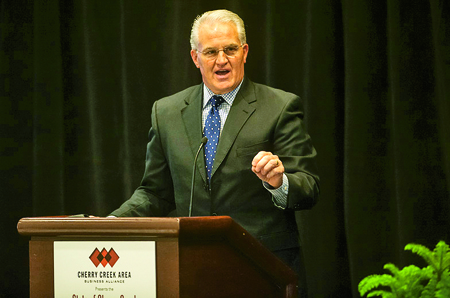
If a customer forgets where they parked, by typing their license plate into a kiosk display it will tell them where they are parked.
Increased security is expected to be a secondary benefit. “We will be adding several hundred more cameras, so that will provide an additional measure of safety and security,” LeMasters reveals. Fortunately, he adds, safety has never been a significant problem, but with many new cameras and an integrated guidance system, it is nice to have more security and an added level of safety.”
The movie theater in the Shopping Center will validate parking and other merchants can also choose to validate parking tickets. The approximately 3,000 employees at the mall will not pay for parking. Also, during special events such as the Cherry Creek Farmers Market and Cherry Creek Sneak parking will be free.
Hatching Reaction
Feedback from shoppers and those living in the neighborhood to the announcement of the parking change has been mixed. Here’s some of the first feedback from Yelpers:
“I have seen the parking situation become increasingly competitive in CCN, mostly because the construction and other workers have taken over the free two-hour spots in the neighborhood. Basically people park all day in the two-hour zone, which means that residents will ask for even more draconian constraints, i.e. permit parking only.” A totally different response: “Huh. Maybe I’ll go to the mall more if there are fewer teenagers lounging around. That’s pretty selfish, I guess.”
Summed up others: “Parking is a PITA [Pain In The A**] more and more in Denver. As densities continue to increase throughout the city, expect more charges to park your buggy in popular areas.” Added yet another: “What a bummer. As if brick and mortar retail needs another reason to be less enticing.”
Surrounded by new high-rise developments on three corners, Jason Rudofsky of Zaidy’s Deli at 1st Ave. and Adams simply says of the growth and parking, “Parking has always been a problem in Cherry Creek, this won’t make it any better.”
Gavin Berry, the General Manager of Del Frisco’s Grille at 100 St. Paul, noted, “Cherry Creek North has always had this stigma attached to it that parking is difficult. So when we came in we knew right away we wanted complimentary valet no matter what the cost might be.” He however understood that the Shopping Center “had to do what they had to do to protect their business.”
When the Chronicle inquired of Christine Des Enfants, Executive Director of the Cherry Creek Chamber, of what effect the Mall’s decision would have on Cherry Creek North, she pleasantly stated “no comment.”
Corrections & Clarifications
In the above feature on Paid Parking at the Cherry Creek Shopping Center, contrary to the article the footprint of Restoration Hardware in the former Saks Fifth Avenue space did not adjust downward the number of parking spaces. Furthermore there currently are no development plans on the east side of the mall that would further cut into parking. “The 5,800 parking spaces at the mall will remain unchanged,” emphasizes General Manager Nick LeMasters.
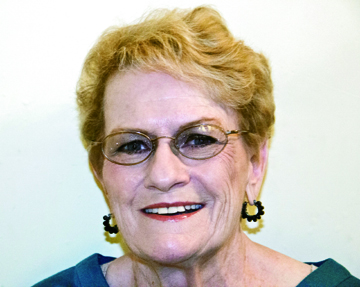
by Mark Smiley | Jul 22, 2016 | Main Articles
Former Denver City Council President Cathy Donohue:
by Cathy Donohue
I have witnessed or was a part of Denver’s political scene, especially the Denver City Council, for over 40 years. Along the way many neighbors, friends and curiosity seekers have asked me how long zoning decisions in the City and County of Denver have been less than above board and whether it is worse today than in the past.
For the past several months the Glendale Cherry Creek Chronicle has been publishing in-depth articles about the manner in which land use decisions are made by some members of council.
The articles have prompted me to tell the citizens what “really” happens before and after the final votes are taken. I believe that Denver citizens need to know the truth from someone who was present when the decision was made and is still able to tell this story.
First it should be acknowledged that the Denver government has a long history of shady characters. By way of example Denver’s 20th mayor, Wolfe Londoner, won the office by 77 votes in 1889, thanks to friends stuffing the ballot box and having operatives, including legendary lawman Bat Masterson and con man “Soapy” Smith, exchanging votes at bars for drinks. In turn Londoner, with the help of the City Council, rewarded saloon owners by ignoring the local zoning laws and residential ordinances on where new drinking establishments could be located as well as reducing fees and cost of licenses for saloon owners. There is still a tunnel under Bannock street that allows people to cross over to the Carnegie Library. It was used to take money to city politicians before the rules of campaign contribution disclosure were established.
Londoner’s level of corruption was so extreme that the courts removed him from office. He later became the President of the Colorado State Press Association. If you substitute today’s “real estate developers” for “saloon owners” and “campaign contributions” for “drinks” you can see that over the years not much has really changed regarding zoning decisio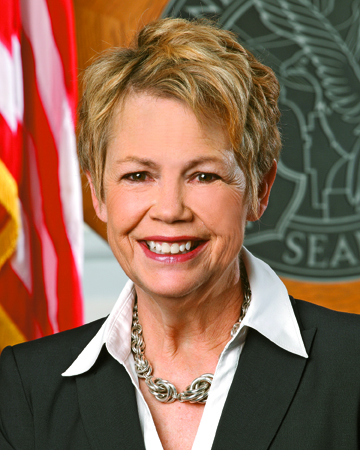 ns in Denver.
ns in Denver.
The Rise Of “Courtesy Zoning”
When I was elected to City Council in 1975, I was joined by two other new councilmembers, Sal Carpio and Sam Sandos (think new Denver City Council members Rafael Espinoza, Paul Kashmann and Wayne New from the 2015 Denver municipal election). The three newcomers did not come from the ranks of “party” politics or any other of the usual paths into elective office. We were “unknown” to the Denver political establishment and we did not receive the normal campaign contributions from Denver’s development community. The entire cost of my 1975 election was $3,000. My opponent spent $4,000 — quite a change from today’s campaigns where office seekers spend $100,000 to be elected to the Denver City Council.
In 1975, Sal, Sam and I were shocked to find out after several months in office that we were powerless to represent those who elected us to office regarding rezoning of private property and parkland. Seven council members (out of a total of 13) had formed a cabal and agreed to vote in lockstep with each other and as their developer co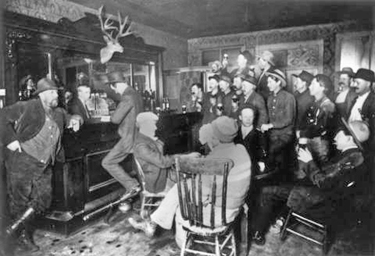 ntributors wanted.
ntributors wanted.
Elvin Caldwell, the leader of the 7-vote cabal that worked for the development community, resigned from council because Mayor McNichols appointed him to be the Manager of Safety. His replacement, King Trimble, was not cut from the same cloth as Mr. Caldwell, and voted with the newcomers. As the Caldwell-led coalition shrunk, we devised a new system to challenge the cabal.
The new system allowed each councilmember to decide what would be appropriate in his or her district and the other councilmembers would respect that decision and “not mess in another councilperson’s district.” (These were the words used at the time).
For more than 20 years beginning in 1975, this system worke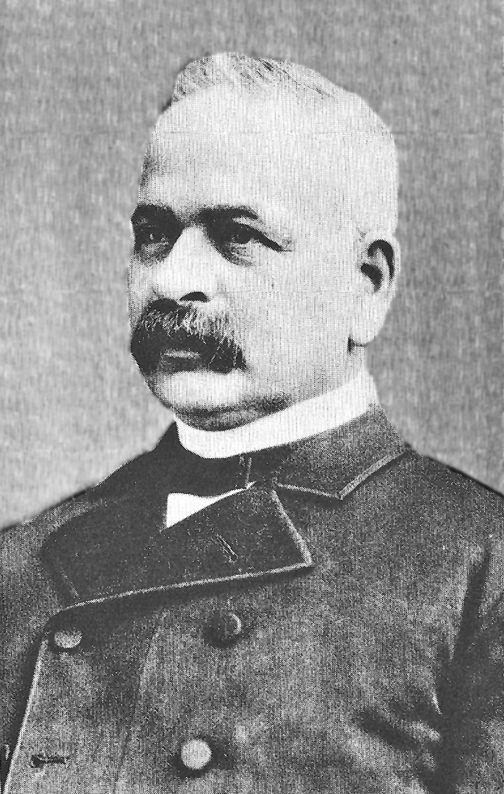 d. We did not have developer-controlled zoning. Land use in parks and private property was under the control of the council person of each district. After 2003, the development community gradually found seven politicians who would accept their contributions. There are now seven Council votes that will put the developers back into their old position of power over council members. They have reverted back to the pre-1975 system.
d. We did not have developer-controlled zoning. Land use in parks and private property was under the control of the council person of each district. After 2003, the development community gradually found seven politicians who would accept their contributions. There are now seven Council votes that will put the developers back into their old position of power over council members. They have reverted back to the pre-1975 system.
Long after Sam, Sal and I left council, someone decided to give a name to the phenomenon. They called it “Courtesy Zoning.” Sal Carpio, Sam Sandos or I never heard the words “Courtesy Zoning” until long after we left elective office. In those districts in which the developers gave lots of campaign contributions, they controlled the city council person in question. The voters in each district know which councilmember is responsible for any questionable rezoning or “Parks” decisions. The voters can put pressure on their representatives if they vote irresponsibly, or they can find a replacement.
The Effect Of Term Limits
In 2003, 12-year term limits were imposed by the voters on all of 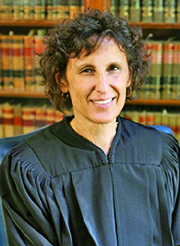 Colorado’s elected officials. While term limits can have salubrious effects, in Denver the law of unintended consequences occurred.
Colorado’s elected officials. While term limits can have salubrious effects, in Denver the law of unintended consequences occurred.
It was an opening that developers and elected officials could exploit. Anyone considering running for Denver City Council simply waits until an existing member becomes term limited instead of going through the hassle of challenging an incumbent. Once elected, a councilmember, barring extraordinary circumstances, does not have to worry about being re-elected until the term limit has been served. Thus, maximum density developers only have to invest heavily in the first term-limited campaign and keep the contributions flowing for the two remaining terms. It usually takes only one election cycle (and quite a few campaign dollars) for developers to regain control of a councilmember.
After 2003, a dramatic and unfortunate reversal began. Slowly, but surely, Councilmembers began to vote against their constituents’ wishes and ultimately the 20-year hiatus from the developers’ hold on councilmembers ended.
Councilwoman Marcia Johnson was the first member to reverse the historical purpose of Courtesy Zoning by voting “yes” on a controversial zoning in her District called Lowry Vista.
Councilwoman Johnson represents District 5. She ignored 87 percent of the residents who opposed the rezoning from open space to high density mixed use. The land had once been used as a waste dump for all the toxic materials generated at Lowry Air Force Base. Quite naturally, Johnson’s constituents worried about contamination, but Johnson simply paid no attention to their pleas. Fortunately, the rezoning is being re-heard in the courts and no one has shown an interest in buying this highly toxic piece of land.
The City Council hearing on the Lowry Vista matter lasted until 2 a.m. Windsor Gardens, whose residents had previously supported the rezoning application, sent a representative to the hearing at midnight to tell Johnson they had rescinded their support from “yes” to a unanimous “no.”
Instead of voting as her constituents requested, Johnson voted with the developers and their lobbyists. In doing so she betrayed the voters. Repercussions followed. When she attended meetings in her district, she was met by angry voters. She decided to hold an “Ice Cream Social” to re-establish herself. Her constituents stayed away. A short time later she announced she would not seek her third term so that she could spend time with her family. Johnson is the only City Council member that has abandoned the 12-year term which began in 2003. Johnson was succeeded as the council member from District 5 by Mary Beth Susman, who promised she would listen to and respect the opinions of her constituents.
Parks In The Crosshairs
Several years ago Denver City Council gave up its right to control Denver parks to the Mayor’s office. It was a strange decision, since under Denver’s “strong mayor” form of government the City Council historically has been envious of the powers of the Administration. Soon, the mayor and his developer friends began looking to Denver’s parks as a source of revenue and development.
The Administration began looking for parkland and open space that had perhaps, by accident, not been designated as a park by an ordinance passed by Council. They found a portion of Hentzell Park that had inadvertently failed to be officially designated as a park. Mayor Hancock quickly prepared to exchange the land for a downtown office building owned by Denver Public Schools. Despite adamant neighborhood opposition Councilwoman Peggy Lehman, who was also term limited, voted “Yes” on removing this land from the parks system. The rest of the Council supported her as if it were a “Courtesy” matter. It should be noted that zoning matters concern “privately owned” land and are requested by the owner. Parks belong to the citizens of Denver. Peggy Lehman’s duties did not include the removal of any parks from the citizens who own them without their approval. She should not have been the “decider” in the matter of publicly owned parkland.
We should also question the wisdom of any public body that believes it is good government policy to put a public school in that part of Hentzell Park that is in a flood plain. Council members then extended the “Courtesy” vote to parkland — a new addition that clearly violates Denver’s charter.
The Death Of “Courtesy Zoning”
By the time the 2015 municipal election took place, neighborhood groups and private citizens throughout the city demanded that all candidates for City Council pledge to abandon “courtesy zoning.” The “Johnson” reversal of Courtesy Zoning left a very bad taste in the mouths of the citizens. Most politicians took the pledge. Voters did not want “courtesy” to ever be used as Johnson had done at Lowry Vista, or as Lehman did with Hentzell Park.
Little did we know that maximum density developers and their minions had figured out a way to pervert the vote of council. When a maximum density developer wanted to rezone the Mt. Gilead Church property on Crestmoor Park he assumed he knew just how to accomplish his mission. Although Susman thought the matter was settled, this rezoning also had to be settled by the courts.
Johnson’s replacement on City Council, Mary Beth Susman, had seen what happened to her predecessor when the vast number of her constituents opposed her vote on the Lowry Vista rezoning. The Mt. Gilead Church property on Crestmoor Park had an equal if not more fierce neighborhood opposition. Susman in fact voted “No” on the rezoning but she let her colleagues know it was just a phony “show” vote. The Council as a whole voted “Yes” to the rezoning. “Courtesy voting” was not honored. Several Denver councilmembers even mocked neighborhood groups at the hearing telling them that, “You wanted us to get rid of ‘courtesy zoning’ and you have been granted your wish.” The councilmembers knew that “courtesy zoning” was a great gift to the citizens, not to the maximum density developers.
Call To Action
Today, voting patterns have come full circle. We have returned to the place we were prior to 1975 — seven votes solidly in the pockets of the Mayor Michael Hancock and the maximum density crowd. Fortunately, the voters elected four new councilmembers last spring that are not controlled by the pro-maximum density crowd –- Rafael Espinoza, Kevin Flynn, Paul Kashmann and Wayne New. They vote their consciences. Two veterans, Debbie Ortega and Paul Lopez, often join them.
Seven other councilmembers, the Denver Community Planning Development Agency under Brad Buchanan, and Mayor Hancock promote bad land use decisions. As demonstrated by the revolting conduct of the infamous “Pro Corruption” Denver District Court Judge Shelly I. Gilman in the Crestmoor Park case, the local court system in Denver may well be as venal as the majority of the members of the Denver City Council. The Denver courts apparently refuse to pretend to be neutral arbiters of disputes between the citizenry and their municipal government and cannot be trusted, based on the judges’ rulings on Crestmoor and Hentzell Park.
Thus, as Denver continues to grow, we need to shine a bright light on the voting of our city’s politicians. We need a “performance audit” to track the land use voting records of Council. The Auditor, the Mayor and the City Council should not be forced to use the same attorneys, as is the rule according to Denver’s Charter. It is morally reprehensible to use the same attorney to represent opposing sides of an issue. At least the Council and the Auditor should have separate legal representation. In the city of Denver, the Mayor is the only elected official with proper legal representation. A number of times in the past, Council has hired its own legal representation.
Applications for rezoning property are believed to make land more valuable — at least that is the common understanding. Private property bordering a city park is even more valuable. Denver citizens need to be made fully aware of the outcome of all “Courtesy” voting, whether it is for zoning changes or loss of land in city parks. If the way in which our city politicians perform their duties does not pass the smell test, we need to replace them and those parts of the city’s constitution that permit this behavior.
Neither do we have to wait 12 years to replace a politician who has sold his or her vote to the highest bidder. Even replacing one council member at a time will cause the others to shiver and quake. They may even begin to care about Denver. We owe it to our children and grandchildren to try to keep our city safe and livable for the future. Council is currently approving highly questionable decisions.

 xcept for a very limited number of instances such as personnel matters or to receive legal advice concerning pending or ongoing litigation. It is also illegal not to state what subjects are to be discussed at an executive session. Finally, it is illegal under the Colorado Open Records Act to refuse to supply copies of records clearly in the public domain including minutes of public meetings.
xcept for a very limited number of instances such as personnel matters or to receive legal advice concerning pending or ongoing litigation. It is also illegal not to state what subjects are to be discussed at an executive session. Finally, it is illegal under the Colorado Open Records Act to refuse to supply copies of records clearly in the public domain including minutes of public meetings.




















